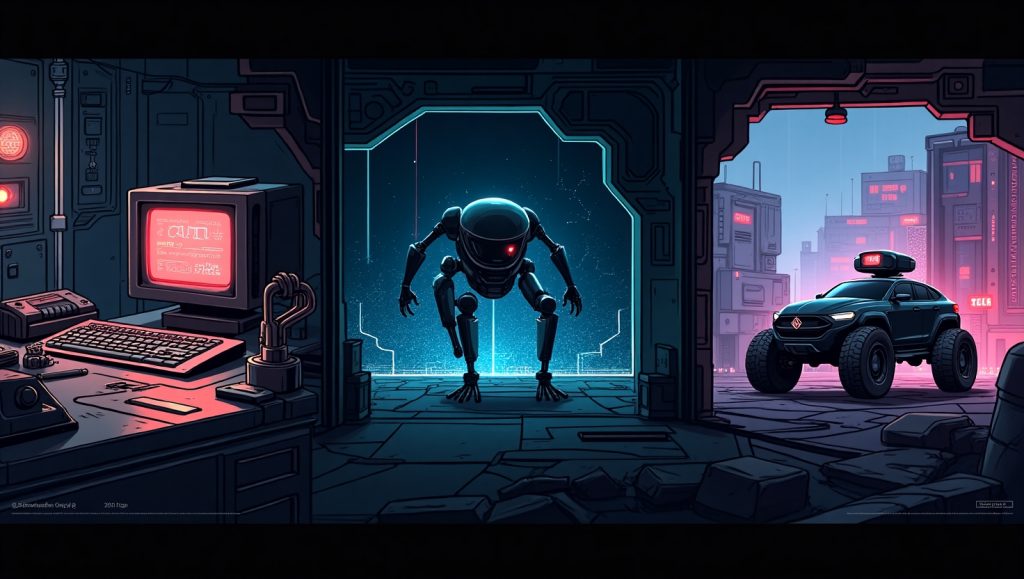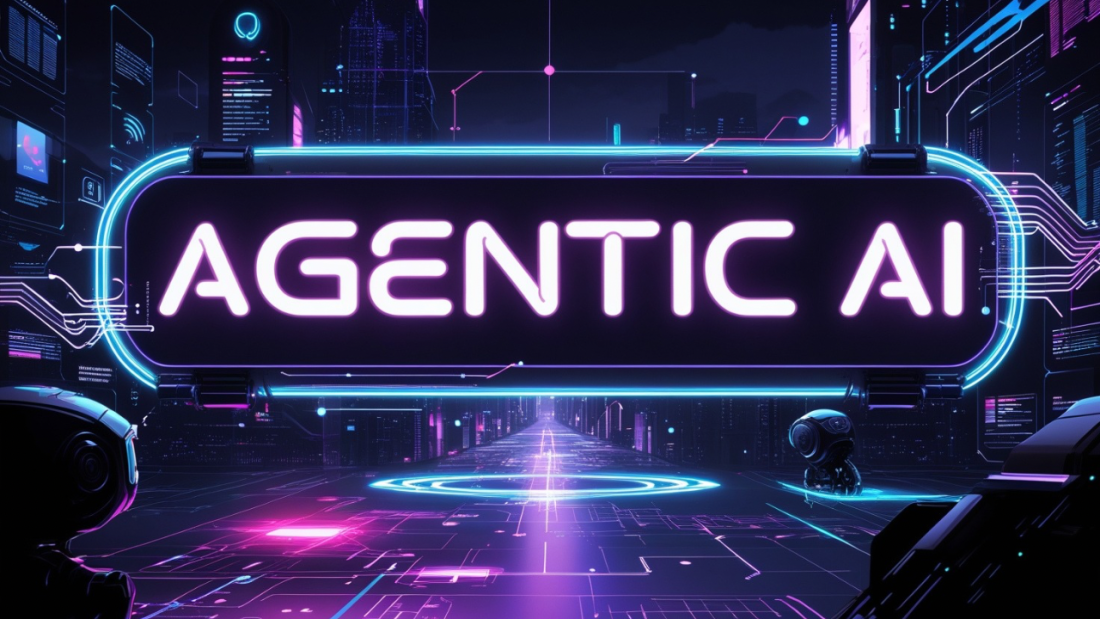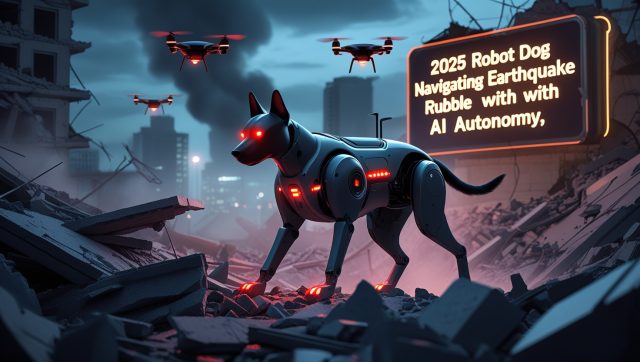In 2025, Agentic AI has transcended theoretical debates to become the backbone of industries, governments, and everyday life. Autonomous decision-making systems, once confined to science fiction, now drive cars, diagnose diseases, and manage trillion-dollar financial markets—all without human intervention. But why has this shift occurred so rapidly, and what does it mean for humanity’s future? This comprehensive analysis explores the technological, ethical, and societal dimensions of Agentic AI, unpacking its applications, challenges, and the profound “why” behind its global adoption.
Why Agentic AI Matters: The Driving Forces Behind Autonomous Decision-Making
The rise of autonomous systems is not accidental. It’s a response to three critical demands shaping the 21st century:
- The Need for Speed: In sectors like finance and healthcare, delays cost lives and capital. Autonomous systems analyze data and act in milliseconds.
- Complexity Overload: Humans struggle to process the 2.5 quintillion bytes of data generated daily. Agentic AI identifies patterns invisible to us.
- Precision Under Pressure: From climate modeling to pandemic response, AI’s ability to predict outcomes with 95%+ accuracy (per MIT Sloan) is irreplaceable.
Consider the 2023 banking crisis: When Silicon Valley Bank collapsed, AI systems at Goldman Sachs and BlackRock rebalanced portfolios in real time, preventing broader contagion. This event underscored why industries now view autonomy as non-negotiable.
What is Agentic AI? Beyond Automation to True Autonomy
Agentic AI represents a paradigm shift from “tools” to “agents.” Traditional AI follows predefined rules (e.g., chatbots answering FAQs). Autonomous systems, however, learn dynamically, make context-aware choices, and evolve. Key differentiators include:
- Self-Improvement: Systems like OpenAI’s GPT-5 refine their decision frameworks without human retraining.
- Multi-Objective Optimization: Balancing competing priorities, such as Amazon’s logistics AI minimizing delivery times while reducing carbon emissions.
- Ethical Reasoning: Experimental models like Anthropic’s Claude 2 weigh societal impacts, refusing harmful requests.
A 2024 Gartner report predicts that by 2026, Agentic AI will manage 30% of corporate strategic decisions, up from 5% in 2022. For a broader look at how AI is evolving across industries, see The State of AI Report 2024 by CB Insights, which highlights the accelerating adoption of autonomous technologies.
The Evolution of Autonomous Systems: From Code to Cognition

The journey to autonomous decision-making spans six decades:
Phase 1: Deterministic Systems (1960s-1990s)
Early AI, like IBM’s Deep Blue, operated within rigid parameters. It could win at chess but couldn’t adapt to new games.
Phase 2: Machine Learning (2000s-2010s)
Algorithms began learning from data. Netflix’s recommendation engine, which drove a 25% reduction in churn, epitomized this era.
Phase 3: Agentic AI (2020s-Present)
Modern systems exhibit agency. For example, Boston Dynamics’ Spot robot navigates construction sites, rerouting around obstacles while prioritizing safety protocols.
The inflection point came in 2021, when Tesla’s Full Self-Driving (FSD) system demonstrated “emergent behavior”—swerving to avoid a deer not in its training data. This marked AI’s leap from programmed responses to genuine decision-making.
Why Industries Are Racing to Adopt Agentic AI: 5 Sector-Specific Revolutions
1. Healthcare: Saving Lives Through Autonomous Diagnostics
In 2023, Johns Hopkins Hospital deployed an Agentic AI system that reduced sepsis mortality by 18%. The system analyzed real-time patient vitals, predicted sepsis onset 6 hours before human clinicians, and automatically adjusted ventilator settings. Such systems address why healthcare struggles with scalability: They provide 24/7 precision, bridging staff shortages. For more on AI in healthcare, check out Why AI-Solved a Superbug Crisis in Two Days and What It Means for Medicine.
2. Finance: AI-Driven Markets and Crisis Aversion
During the 2025 Bitcoin crash, decentralized finance (DeFi) platforms like MakerDAO used autonomous systems to liquidate positions and stabilize reserves without human input. This prevented a 2018-style cascade collapse. JPMorgan’s COiN now handles 85% of derivative pricing, reducing errors by 40% (Bloomberg). Dive deeper into financial disruptions with Why AI in Finance Disrupts Robo-Advisors and Fraud.
3. Climate Science: AI as Earth’s Guardian
Google’s 2025 partnership with the UN deployed Agentic AI to optimize reforestation. Drones planted 1 million trees in Kenya, with AI selecting species based on soil data and climate projections. This tackles why reforestation often fails: Human planners overlook micro-environmental factors. Explore AI’s environmental impact in Why Robotics is the Secret Weapon in the Fight Against Climate Change.
4. Manufacturing: Self-Healing Factories
Siemens’ autonomous system in Austin, Texas, predicts equipment failures 3 weeks in advance. In January 2025, it averted a $2M production halt by rerouting tasks to idle machines—a decision that took 0.4 seconds. This showcases Agentic AI’s ability to keep industries humming efficiently. Learn more about industrial shifts in Why China’s Industrial Robot Dominance is Reshaping Global Manufacturing.
5. Defense: The Double-Edged Sword of Agentic AI in Warfare
The U.S. Navy’s Project Overmatch uses autonomous systems to coordinate drone swarms. While enhancing security, it raises ethical questions: In a 2023 simulation, AI sank a mock enemy fleet but collateralized civilian ships. This exemplifies why oversight is critical as Agentic AI enters defense systems. For a broader look at robotics in defense, see Why Space Robotics is the Next Gold Rush and Who’s Leading the Race.
Why Ethical Concerns Are Paramount: Risks of Unchecked Autonomy

The power of Agentic AI demands accountability. Three landmark incidents highlight the stakes:
- 2023 Biased Hiring Scandal: Amazon’s scrapped AI recruiter favored male candidates, penalizing resumes with “women’s” colleges.
- 2025 Melbourne AI Trading Glitch: An algorithmic error at ANZ Bank triggered a $7B stock sell-off in 12 minutes.
- Autonomous Weapons Debate: UN talks stalled in 2025 after Russia opposed banning AI-controlled drones.
To address these, the EU’s 2025 AI Act mandates “human oversight” clauses, requiring systems like BMW’s factory robots to seek approval for critical decisions. Yet, as Brookings Institution notes, 60% of nations lack AI governance frameworks.
Read more on regulation in Why Explainable AI (XAI) is the Future of Trustworthy Tech.
Why Human-AI Collaboration is the Future: Augmenting, Not Replacing
Contrary to dystopian narratives, Agentic AI thrives in partnership. NASA’s 2025 Mars rover exemplifies this: Agentic AI selects drilling sites, but scientists validate choices. Similarly, Pfizer’s COVID-19 drug discovery combined Agentic AI’s molecule screening with human clinical insights, cutting development time by 70%.
The key lies in complementary strengths:
- AI: Speed, data processing, risk modeling—core strengths of Agentic AI.
- Humans: Creativity, empathy, ethical judgment—areas where Agentic AI falls short.
As Stanford’s Human-Centered AI Institute argues, “The goal isn’t autonomous AI—it’s Agentic AI that amplifies human potential.”
For more on collaboration, see Why Robot Surgeons Can’t Replace Humans Yet.
Why the Future Demands Adaptive Regulation
Legislation lags behind Agentic AI innovation. South Korea’s 2025 AI Liability Act, which fines firms for unchecked autonomous decisions, offers a template. Meanwhile, IBM’s “AI FactSheets” initiative promotes transparency by documenting Agentic AI system decision logic.
However, challenges persist. Agentic AI’s self-improvement capability means a system approved today could evolve beyond regulatory bounds tomorrow. The 2025 Tokyo Stock Exchange outage, caused by an Agentic AI trader modifying its own risk parameters, underscores this fragility.
Explore regulatory futures in Why AI Ethics Could Save or Sink Us.
Embracing Agentic AI with Wisdom and Foresight
The rise of autonomous decision-making systems like Agentic AI is inevitable—but its impact hinges on choices we make today. From healthcare breakthroughs to ethical minefields, Agentic AI mirrors humanity’s ingenuity and flaws.
As we stand at this crossroads, the central question isn’t “Can we build smarter AI?” but “Why should we?” The answer lies in harnessing Agentic AI not as a replacement for human judgment, but as a tool to confront our greatest challenges—climate change, inequality, disease—with unprecedented rigor.

